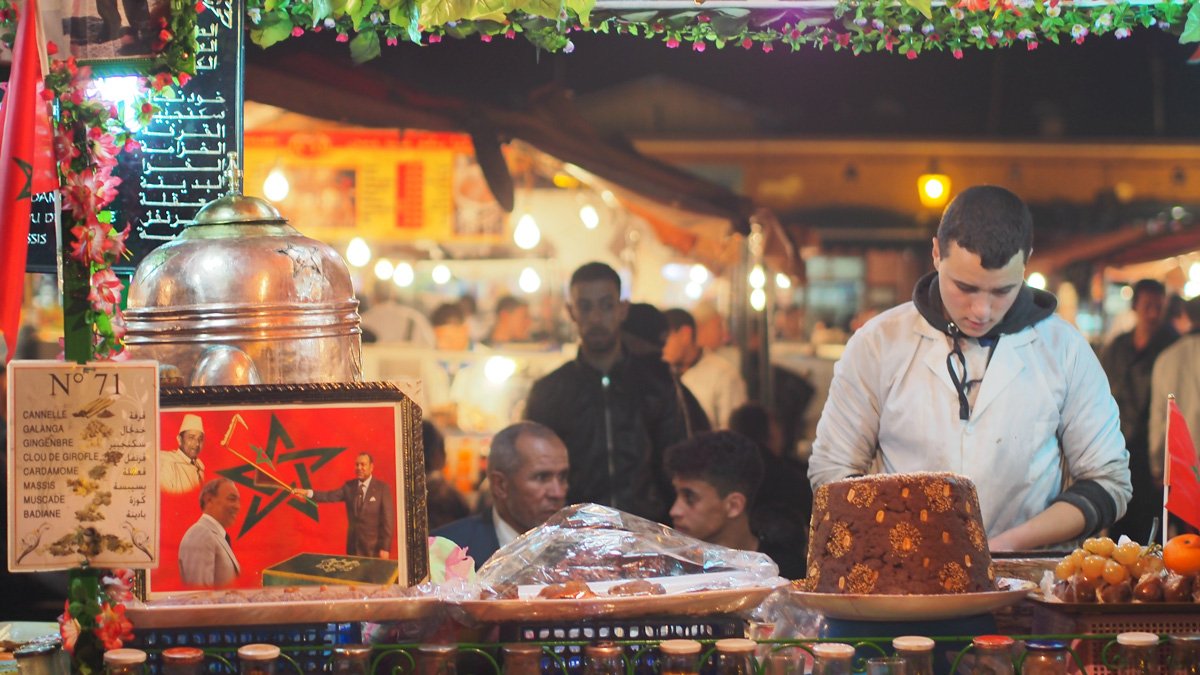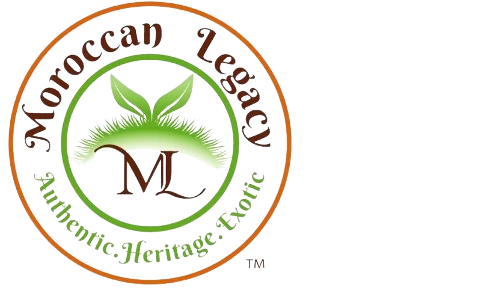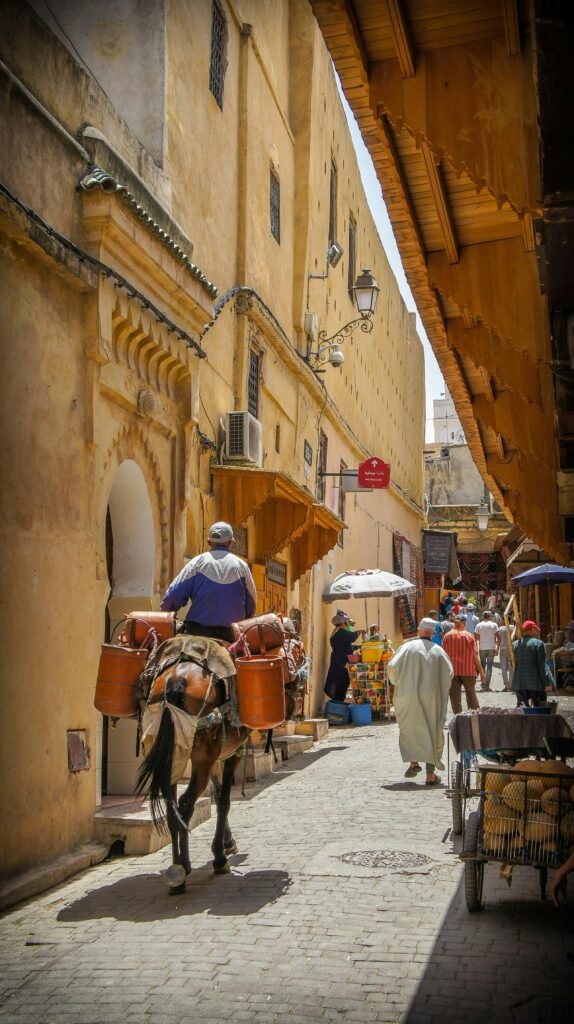Table of Contents
ToggleIntroduction
Family in Morocco: Family plays a pivotal role in virtually every society worldwide. As the basic unit of social structure, the family’s well-being is of utmost importance. In Moroccan culture, like many other traditional cultures, the importance assigned to family is immense. Strong family ties, deep respect for elders, and close-knit relationships are hallmarks of Moroccan society.
In this blog post, I aim to discuss the family’s central role in Moroccan culture. I will touch upon various cultural norms, traditions, and practices, highlighting the significance of strong family bonds and values. The concept of extended family, hierarchical and rigid gender roles, and cultural attitudes towards marriage and child-rearing will be explored to shed light on how the family is positioned at the heart of the Moroccan social fabric.
While globalization and modernization are gradually bringing changes, traditional family structures and core values continue to influence the Moroccan worldview. Understanding this deeply embedded cultural perspective on family can provide meaningful insights into the Moroccan way of life. I hope this post is informative about the importance accorded to family as a socio-cultural institution in Moroccan society.
Family in Morocco: Family Structure in Moroccan Culture
Like many Middle Eastern and North African cultures, Moroccan society is typically collectivist, where group interests precede individual priorities. At the core of this collectivist outlook lies the centrality given to family – both nuclear and extended. The family, rather than the individual, constitutes the basic socio-economic unit.
Traditionally, Moroccan families are patrilineal and patriarchal. The extended family system is prevalent, with three or more generations often residing together under one roof. The extended family comprises parents, children, siblings, grandparents, uncles, aunts, and cousins. Blood relations through both paternal and maternal lineage are considered family. Such multigenerational living arrangements reinforce solid bonds and a sense of collective responsibility towards one another.
Hierarchy and authority are well-defined within the family system. The male head of household, typically the oldest living male, holds immense authority and command over family decisions. Other male members, like brothers and sons, follow his rule. Women are ascribed supportive roles focusing on homemaking, child-rearing, and caring for older people. Younger individuals are expected to show deference and respect towards their elders through obedience and service.
While nuclear families have become more prominent due to modern pressures, the influence of the extended family remains strong. Elders continue to play advisory roles, and their opinions carry weight in family matters. Multigenerational homes dotted with grandparents, parents, and children co-existing under one roof are still standard in Moroccan villages and towns. Cousins and other relatives see each other frequently and maintain close bonds of kinship and mutual support through shared celebrations, troubles, and daily interaction.
Importance of Family Bonds and Relationships
Given the central position occupied by family, maintaining strong ties and cultivating bonds of kinship are deeply ingrained cultural values in Morocco. Despite socio-economic transitions in Moroccan society, these traditional mores have stood the test of time. Some aspects highlighting the importance accorded to family bonds are discussed below:
- Elders are treated with utmost respect and reverence, known as “tasbih.” Children are expected to care for elderly parents and fulfill their needs and wishes as a form of respect and family duty.
- Hospitality and generosity towards relatives and guests emanating from the family is considered a matter of honor and social status. Providing food and shelter to kin is non-negotiable.
- Inheritance of family property, business, or other assets is prioritized for male children and close relatives to keep these resources within the bloodline.
- Strong kinship ties offer comfort and support during difficult life phases like illness, unemployment, or marital disputes. Family acts as a reliable social safety net.
- Socializing and spending leisure time primarily revolves around the extended family through frequent get-togethers, meals, religious celebrations, and community participation.
- Arranged marriages are preferred to choose life partners who adjust and gel into the family system to maintain cultural traditions. Love marriages are a recent phenomenon.
- The reputation and social standing of the family as a whole are closely linked to the conduct of individual members. A respectable public image of the family is essential.
As can be seen, cultivating a strong sense of belonging, solidarity, cohesion, and mutual responsibility defines family relationships in Morocco. Upholding family name, honor, and togetherness lie at the core of cultural and social mores.
Family in Morocco: Family and Gender Roles
Along with family structure, gender roles within the family present another aspect revealing the cultural significance accorded to family institutions in Morocco. As a traditionally patriarchal society, well-defined gender roles centered around family responsibilities exist even today.
For men, the foremost duty is to serve as head of household and breadwinner for the family. Financial provisioning of all family members is the male prerogative. Acting as protectors and decision-makers on family matters also comes under the male domain. Displaying masculinity through physical strength, authority, and community stature is culturally valued for men.
On the other hand, women are assigned caring roles as wives, mothers, and homemakers. Cooking, cleaning, and child-rearing are primarily seen as feminine obligations. Although modernization has allowed career options, a woman’s honor, and social reputation still lie in faithfully fulfilling her nurturing family functions. Obedience to male family members, maintaining sexual purity and modesty through dress and conduct are virtue markers for Moroccan women as well.
While young people are gradually adopting progressive gender attitudes, the traditional binary division of roles within private and public spheres continues to hold influential power in family affairs. Even working women often juggle home duties along with their professional engagements. Compliance with prescribed gender roles facilitates social assimilation and family cohesion per the local cultural context. Distinctive family roles based on biological attributes are significant in the Moroccan conceptualization of womanhood and manhood.

Family and Marriage
Marriage constitutes a seminal social institution that consolidates family structures and cultural practices throughout generations in Morocco. Arranged marriages through familial contacts are more prevalent than individual choice, but it continues to overshadow the independent choice of partner.
Families view marriage as a union of two individuals and a means to create solid alliances and expand their social networks. Prospective partners are carefully vetted not just based on characteristics like education, profession, or personality but also on family background, reputation in the community, financial stability, and capacity to continue cultural heritage through offspring.
Dowry, or “sikaakhal” in local parlance, is an essential matrimonial custom where the groom’s family provides monetary and non-monetary gifts to celebrate the new union and secure the father-in-law’s consent. The economic value and quality of gifts reflect the groom’s family standing.
Virginity is considered a virtue for brides, and non-virgin brides face significant socio-cultural stigma. Post-marriage, young brides relocate to their husband’s family homes to facilitate adjustment to new household dynamics and authority structures. Loyalty, obedience, and fertility are desirable attributes of Moroccan wives. Divorce, though not uncommon presently, invites some social disapproval even today.
Overall, marriage functions to socially sanction sexual relations, continue family lineage, and strengthen tribal/community affinities through such unions. While independent choice gains acceptance in contemporary Morocco, cultural preferences still tilt towards family-arranged alliances to shore up collective responsibilities and cultural moorings within the family framework.
Family and Child Rearing
Moroccan families prioritize bearing and raising children who would inherit cultural ethos and property and continue the family name for future generations. Large families with 4-5 children used to be the norm to increase family workforce and security in old age.
Though population growth has slowed, children occupy a coveted place in Moroccan households. From early socialization, cultural values of obedience, respect, modesty, generosity, and religiosity are instilled in children. Elders and extended relatives also play active roles in disciplining and guiding the young as a collective duty.
Sex-segregated upbringing is ordinary, where boys are geared toward assertiveness, outdoor activities, and academic pursuits; at the same time, girls learn domestic chores, childcare, and other nurturing skills from an early age to assume feminized family obligations later in life.
Physical punishments like slapping or caning though frowned upon today, also find cultural acceptance to correct the wayward behavior of children. Absolute deference to parents is an entrenched social norm that children are expected to conform to for most of their lives.
Overall, the family predominantly functions as the primary agent of socialization and carrier of cultural traditions through succeeding generations in Morocco. Upright conduct, academic achievements, and maintaining family honor through children bring prestige to their parents in the tightly-knit community setting.
Influence of Religion on Family Institution
Islam, being the official and majority religion in Morocco, with over 99% Muslims, exerts considerable influence in shaping the institutional framework and value system around family. Some essential Islamic teachings governing family life are:
- Sanctity of marriage bond – Marriage is strongly encouraged in Islam and is considered half of the faith. Extramarital relations are forbidden.
- Importance of procreation – Bearing children, especially sons, to continue one’s religious lineage and ensure posterity scores high
FAQs
FAQ 1: What is the typical family structure in Morocco?
The typical family structure in Morocco is the extended family system, consisting of 3 or more generations living together. This includes the parents, children, grandparents, aunts/uncles and cousins. The extended family provides a robust support system where family members help each other.
While nuclear families are becoming more common, the influence of the extended family remains deeply ingrained in Moroccan culture. The family is headed by the oldest male, usually the grandfather, who controls family decisions. Multigenerational homes are still widespread, especially in rural areas.
FAQ 2: What roles do men and women play in the family?
Moroccan society has traditionally been patriarchal. The man is expected to be the breadwinner and head of the household, taking financial and decision-making responsibility for the family. Women take on roles centered around child-rearing, homemaking, and caring for elderly family members. Obedience to male relatives like father, husband, and son is emphasized. While women’s roles are broadening, traditional gender-separate spheres still sway where women balance domestic duties with careers or studies. Compliance with modest, nurturing feminine virtues is valued culturally.
FAQ 3: What is the view on marriage and divorce in Moroccan families?
Marriage is essential to raise a family and continue the bloodline. Arrangement of spouses through families is more common than in love marriages. Families carefully consider lineage, reputation, and financial stability in choosing matches. Dowry and relocating to the husband’s home post-wedding are time-honored customs. Virginity is valued in brides. Though divorce is legally possible, it invites some social stigma, showing failure to uphold family obligations. Loyalty, fertility, and adjustment within marital households are prioritized.
FAQ 4: What role does religion play in family life?
As over 99% of Morocco follows Islam, religious rituals, mandates, and morality strongly influence familial conduct. Islam encourages early marriage and regards it as half of faith. It prohibits extramarital relations and stresses the importance of bearing children, especially sons, to continue the family name. As ordained by the Quran, morality, modesty, and obedience are instilled through Islamic upbringing at home. Weekly community prayers at the mosque also help tighten kinship networks.
FAQ 5: How are children raised and socialized in Moroccan families?
Discipline, obedience, devotion towards elders, and family honor are taught from a very young age through cultural socialization at home. Sex-segregated upbringing prepares them for gender roles. While physical punishment is less accepted now, children are expected to defer to parental authority completely. Emphasis is laid on religious/moral upbringing, academic skills for boys, and domestic training for girls. Bearing sons to continue the bloodline is highly encouraged. Extended family also participates actively in this process.
FAQ 6: What changes are happening today due to modernization?
Urbanization, education, and exposure to global culture through the internet/media gradually alter family structures and gender outlooks, especially among youth. Nuclear families are more prevalent due to migration. However, close-knit extended families maintaining multigenerational homes are still ordinary, especially in villages. While arranged marriages are prevalent, love marriages are a growing trend.
There is rising autonomy and participation of women in public spheres even as traditional roles are still valued. Changing demographics also mean smaller families are preferred now compared to large joint families earlier. Overall, traditional family cohesion and values continue shaping Moroccan mindsets despite transformations.
Conclusion
To summarize, strong family ties, hierarchical values, communal priorities, and rigid gender roles define ‘family’ as a pivotal institution in Moroccan culture. Maintaining an extended family network’s honor, continuity, and collective well-being is profoundly revered.
Religion, tradition, and socialization from a young age consolidate these familial ideals throughout generations. While lifestyles necessarily adapt to contemporary realities, the overarching significance granted to the family as the bedrock of social cohesion remains remarkably intrinsic to Morocco’s value system even today. The cultural centrality of idealized family structures provides meaningful insight into broader Moroccan worldviews.


